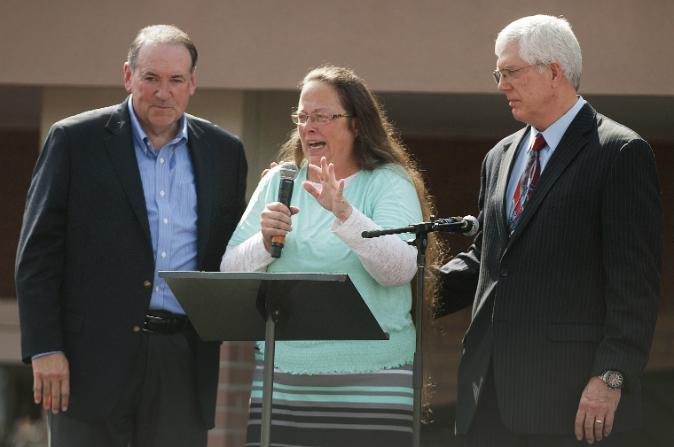A path may be opening up to once again bring the issue of same-sex marriage before the U.S. Supreme Court.
The legal trail began in the U.S. District Court of Eastern Kentucky in the case of Ermold v. Davis, when Judge David Bunning assigned a jury the task of determining the amount of monetary damages a same-sex couple should be awarded because a Rowan County clerk refused, on religious grounds, to sign their marriage license.





